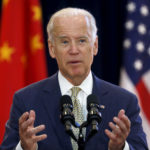(Oil Price) – Donald Trump’s victory in last week’s elections has worried many people. The reason they are worried is the word tariffs. Trump has threatened to impose tariffs on every country he sees as having an unfair trade advantage over the United States. One country is lucky, however. That county really does have an advantage—and tariffs will not erase this advantage.
Canada is the biggest foreign supplier of crude oil to U.S. refiners. Canadian supply is especially vital in heavy crude, which U.S. oil companies do not produce anywhere near the necessary volumes for refineries along the Gulf Coast. American crude is light and sweet. A lot of Canadian crude is heavy and sour. And U.S. refiners need both—at low prices.
“We import a lot of energy from Canada. I can’t imagine that the president would want to tax that because all it would do would be to raise our costs and not help anything with more American jobs,” former Secretary of Commerce Wilbur Ross told CBC this week, “So I think it’s easy to have the fears be overblown.”
Indeed, per Bloomberg, Canada’s energy exports to the United States were worth close to $160 billion—most of that in the form of crude oil, refined products, and natural gas. A year later, crude oil exports alone hit a record of some 4 million barrels daily. Of those, 97% went to the U.S., the Canada Energy Regulator reported in August. All that because the U.S. may be the biggest producer of crude oil but it does not produce the full variety of grades that its refineries need in order to churn out petroleum products.
It is a symbiotic relationship, really. Canada has all this heavy crude and a neighbor that needs all the heavy crude it can get its hands on, especially after it sanctioned the other two big heavy crude producers: Venezuela and Russia. The United States has all these refineries configured to work with light and heavy crude, and a neighbor with some of the biggest oil sands reserves in the world. That neighbor has been eager to diversify its export outlets, but it mainly has increased shipments south of the border.
Spring 2024 in Canada marked a historic moment. The Trans Mountain pipeline put into operation its expanded capacity of close to 900,000 barrels daily. That’s up from just 300,000 bpd, meaning the Trans Mountain can now carry three times what it could carry previously. Numerous attempts were made to cancel the project, but in the end, demand for energy won and TXM was completed—and thanks to that, Canadian oil exports to the United States broke their record this year, hitting 4.3 million barrels daily in July, per U.S. Energy Information Administration data.
U.S. refiners need Canadian crude and have nothing to replace it with, not in the necessary volumes. Even if some future U.S. administration decides to lift all sanctions from Venezuela and Russia, Canadian heavy crude will likely remain the cheapest, most convenient sort of heavy crude for U.S. refiners. Unless that is, the Trudeau government pushes its draconian emissions cap through and makes local crude oil production a lot more expensive.
Until this happens, however, Trump is unlikely to point the tariff weapon north. Tariffs only work from a position of power. They don’t really work in a symbiotic relationship where the partners need each other equally.
By Irina Slav for Oilprice.com







